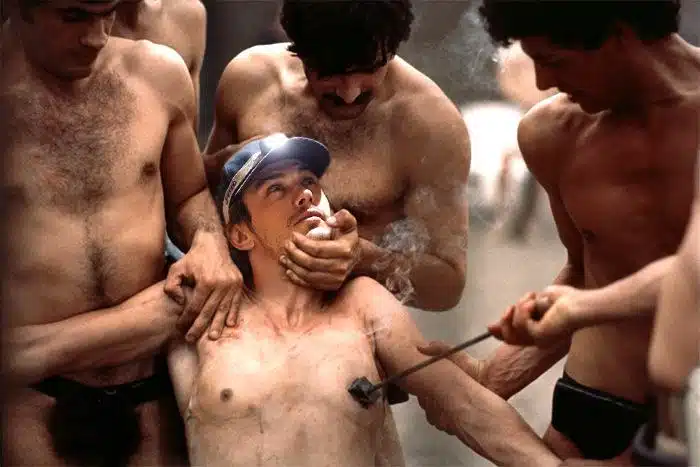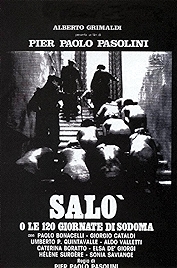A movie for every day of the year – a good one
27 November
James Pratt and John Smith executed for sodomy, 1835
On this day in 1835, the last two men to be publicly executed for buggery in England were hanged outside Newgate Prison in London, where a fairly large crowd had gathered. James Pratt, aged 30, and John Smith, aged 40, had been discovered in flagrante in the room of another man, William Bonill, by Bonill’s landlord, who had become suspicious about the string of men who would visit him. By climbing into the loft of the next door building, the landlord had been able to catch sight of what Pratt and Smith were up to, and then confirmed his sightings by taking a peek through the keyhole of the room they were in, as did his wife. He then broke down the door to confront them. The penalty for buggery was death in those days, and had been since King Henry VIII had created An Acte for the Punysshement of the Vice of Buggerie, it is thought as a way of enabling him to confiscate large amounts of Church land under one of the act’s forfeiture clauses. This had become the Buggery Act in 1533, then the Offences Against the Person Act of 1828. Of the 17 people who were sentenced to death at the September and October sessions of the Central Criminal Court, all had their death sentences commuted, except for Pratt and Smith, who were hanged, in spite of the pleas for clemency by their wives. As a special newspaper printed and handed out just for the occasion put it, “The prisoners having been conveyed from their cells early in the morning, were at the usual hour conducted to the fatal spot, and soon after launched into eternity, amidst the yells & groans of the spectators.”
Salo, or the 120 Days of Sodom (1975, Pier Paolo Pasolini)
From the era when “arthouse” was often a synonym for “porn”, Pasolini’s most infamous film is hardly titillating, though it is brimming with nudity, sex and sexual perversion. In fact it can be seen as the antidote to the sort of film Pasolini had been making only a couple of years earlier – The Canterbury Tales and The Decameron – in which lusty young men with untameable erections would get into saucy scrapes with buxom wenches. You don’t get that with Salo. Instead it’s a tale of tyranny and sex, and the tyranny of sex, in an Italy ruled over by the Nazis, where a lawyer, a banker, a cleric and an aristocrat are at the head of a grand odious plan to lure comely young folk to a villa where they are subject to all manner of sexual degradation. Based on De Sade, it is designed to shock – the shit-eating scene does it for most people – but the intention isn’t to offend. Pasolini had a point about the pillars of society, all in cahoots, having a broadly similar harmful effect on the mass of the people. Whether his point needs to be quite so graphically expressed is the question – the film has barely been seen since it was made. Salo is banned in most countries, and even in those countries where freedom of expression is a constitutional matter it’s very hard to get hold of a copy of Salo. Because, in short, there’s just not much appetite for it. Still, if lines of dialogue such as “There are a thousand occasions when one does not desire a woman’s anus,” have piqued your interest, this Dante-esque descent to specially reserved circles of hell by one of the brightest talents of the intensely productive Italian cinema of the era might be your bag.
Why Watch?
- Pasolini’s last film
- There’s real “I watched it” kudos
- For a while DVDs of Salo became the most expensive in the world
- Ennio Morricone’s jazz tinged soundtrack
Salo, or the 120 Days of Sodom – at Amazon
I am an Amazon affiliate
© Steve Morrissey 2013

